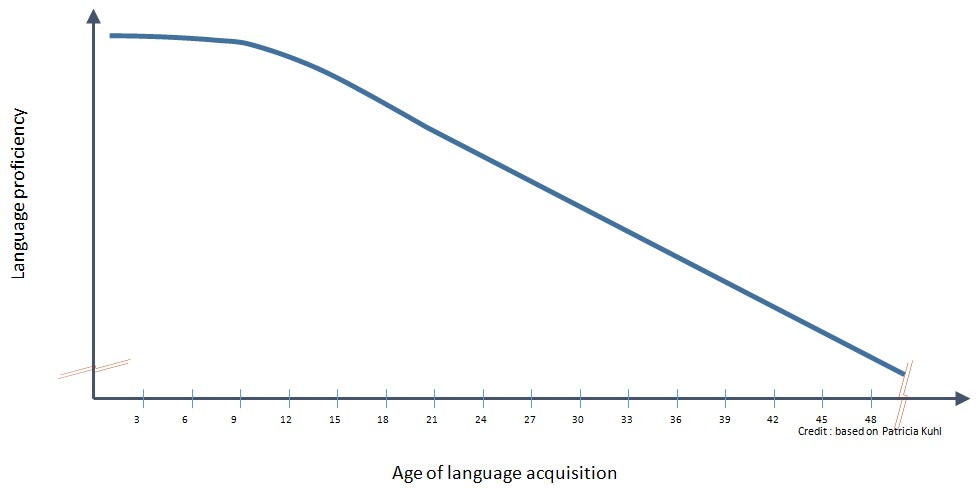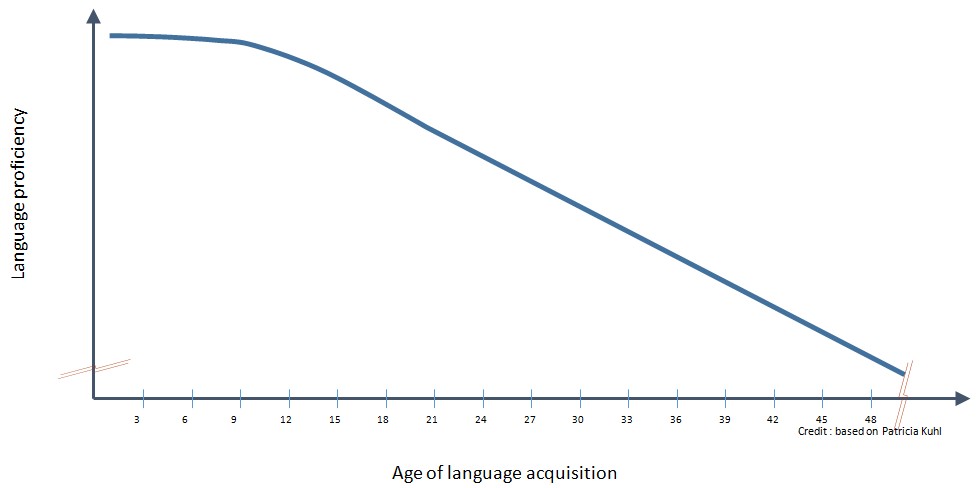Why it’s important to teach children a language
It is a proven fact: the age of acquisition of a foreign language is a strong predictor of ultimate similarity to native speaking. In other words, aiming for a native speaker level requires engaging in early learning. This is not only the finding of any adult marveling at the ability of young children to learn, or alternatively lamenting his own challenges to go beyond certain thresholds. These are also facts that all scientists now agree on.
Learning a foreign language as an adult?
This does not mean that adults cannot learn at all. Quite the contrary, adults can often start learning a second language much faster than children. During their lifetime they have developed cognitive abilities that are superior to those of children. When they tackle a language, they are immediately capable of structuring their learning and organizing their knowledge ; drawing phonetic, syntactic or semantic comparisons with other languages or language groups ; understanding or generalizing a rule.
The quality of pronunciation
But in the long run, the time and the energy that adults have to devote to their learning far exceed those of children. And it is not long before obstacles start popping up. Pronunciation is usually an insurmountable issue that emerges right from the outset. Adults soon reach a general cap in their learning. For many learners, building sentences is a conscious effort rather than the natural flow or the near reflex of a native speaker. Even highly talented adult learners will sooner or later be betrayed by a facet of speech : a sound never produced, a phrase never used, or a mistake never made by a native speaker.

So children learn much better than adults
Yet adults can learn to some extent. This is why the historic notion of a critical period is now giving way to that of a sensitive period for learning. When the notion of a critical period prevailed, it was believed that at a certain age – somewhere between 4-5 years-old and teen-age depending on the authors – the ability of learning would drop drastically and almost vanish overnight. More refined theories would identify several critical periods depending on the element of language structure: phonology, morphology, semantics… Except for phonology today’s belief is different. It is now generally accepted that there is a sensitive period that ends before the teenage years ; language learning is much easier during this sensitive period than afterwards.
Have you yourself noticed the great ease displayed by children when learning, compared to adults ?
You will find out in our next post why children learn better.





